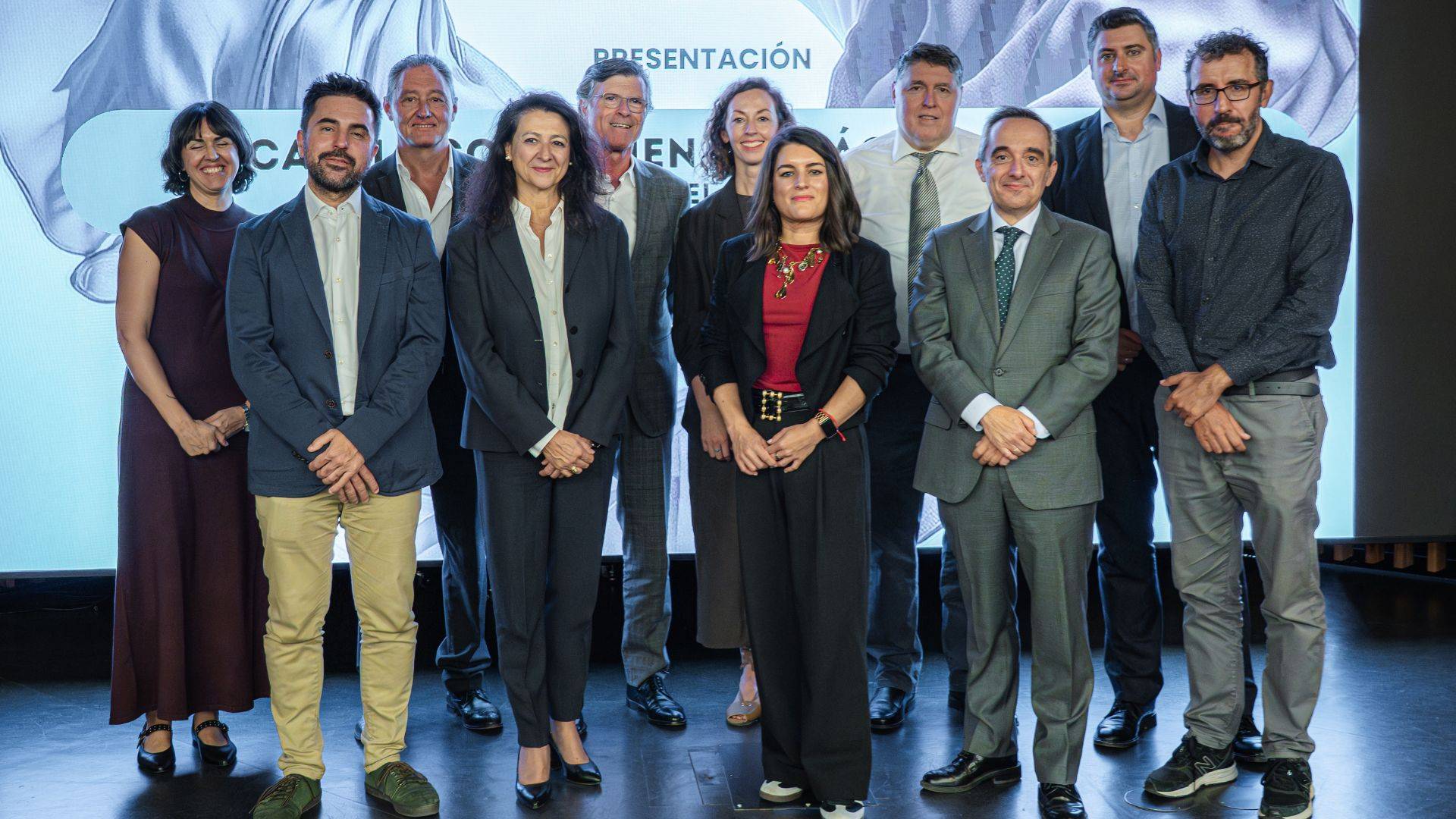UDIT hosts the presentation of the Catalogue of Good Practices 2025 of the Textile and Fashion Observatory
The Auditorium of the Design and Creative Industries Campus of the University of Design, Innovation and Technology (UDIT) hosted the presentation of the Catalogue of Good Practices 2025 drawn up by the Textile and Fashion Observatory, a meeting that reaffirms the university's commitment to applied research and the sustainable transformation of the sector.
The event not only marked the launch of this document, the result of the Observatory's work in recent months, but also became a space for dialogue in which professionals from the sector addressed key issues such as sustainability, circularity, traceability and the regulatory framework that accompanies these processes.
José Luis Olazagoitia, Vice-Rector for Research at UDIT, was in charge of welcoming the attendees, with a speech in which he mentioned some projects carried out under this Vice-Rectorate, such as the Tendam Sustainability Lab, and highlighted the role of the University in the path of sustainability: "UDIT is positioning itself in a clear way. From the Vice-Rectorate we are supporting groups and lines oriented in this direction. We try to make a connection between university and business, through R+D+i projects, where we try to make sustainability visible and give it value".
For his part, Juan Parés, president of the Textile and Fashion Observatory, who took the floor to introduce the document itself, wanted to highlight the importance of this catalogue, which "can be something that can serve as a reference in fundamental aspects of what has to be the future axis of our textile industry".
He also reviewed some of the main challenges facing the industry in relation to sustainability and circularity: "Circularity for me has something fundamental, which is sometimes difficult to integrate, and it is a concept that is unlearning. We need to think differently, we need to integrate a new concept within companies, and it is not about sustainability, decarbonisation... It is about a global spirit that must remain in the company (...) The change that is required of us is profound and, for this, we must activate, in my opinion, four levers that must be fundamental: the structural redesign of the company, data intelligence, financing adapted to this change and advanced technology".
Legislating and communicating sustainability
After the institutional welcome, Ismael Aznar (PwC) gave the conference How to prepare for the future European regulations on textile circularity, in which he presented the current and future regulatory framework in sustainability, as well as its reflection in the Catalogue of Good Practices 2025. She emphasised that this document organises the good practices into four axes, integrating recommendations and cases that illustrate how different companies are leading by example.
Rosa Ana Rodríguez Alonso (Escuela de Unidad Editorial) then analysed the importance of communicating sustainability, recalling that "what is not communicated does not exist". She insisted that communication must be at the service of business strategy and that transparency, coherence and data support are key to generating trust among employees, customers and other stakeholders.
A conversation from experience
The round table, moderated by Margaret González, journalist and head of Communication at the Observatory, brought together representatives from Humana, Textil Santanderina, JD Group and Tendam Sustainability Lab. The participants shared experiences included in the catalogue and agreed that the future of the sector lies in strengthening alliances, committing to innovation and teaching about sustainability.
Rafael Mas (Humana) defended the need to collaborate with academia, technology centres and even with competitors, while Javier Martínez (Textil Santanderina) reminded that sustainability should not be understood as a luxury, but as an opportunity, especially for SMEs, whose dynamism and capacity to adapt are key in the Spanish textile industry. Along the same lines, Nuria Combrado (JD Group) stressed that progress towards circularity requires cohesive links between companies and different agents in the sector. María Tamames (Tendam Sustainability Lab and UDIT) stressed the importance of rethinking current models, measuring the real scope of our actions and connecting academic research with industrial practice.
The closing speech was given by Alejandro Dorado Nájera, Commissioner for the Circular Economy of MITECO, who celebrated the value of the Catalogue of Good Practices 2025 as a tool to inspire new ways of doing business. He stressed that adopting good practices not only facilitates regulatory compliance, but also generates economic benefits, improves reputation and opens the door to new markets. With this meeting, UDIT reaffirms its role as a university that trains, researches and accompanies the sector in the transition towards a more circular, sustainable and technological industry.

